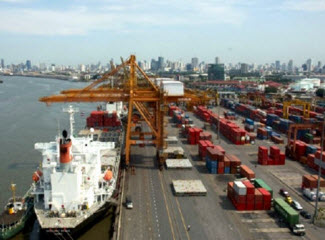BANGKOK, April 29 – The Thai economy is projected to grow 4-5 per cent this year despite impacts of the recent earthquake and tsunami in Japan and severe floods in the southern region in March, according to Fiscal Policy Office (FPO).
Boonchai Charassangsomboon, Director of the FPO’s Macroeconomic Policy Bureau, said the country’s economy enjoyed growth of more than 4 per cent in the first quarter of this year, boosted by the continued improvement of local demand and exports.

He said that global oil prices continued to stay high. For instance, the current price of Dubai crude hovers around US$116-117 per barrel, higher than the Finance Ministry expected at $95 per barrel, for the whole year.
Should fuel prices continue rising in June, the Finance Ministry would revise its gross domestic product (GDP) growth projection.
He predicted that the inflation rate for the whole year would stay at 3.1-4.1 per cent because the government extended its subsidy of liquefied petroleum gas prices for household use and as automotive fuel until September.
Also, the diesel oil excise waiver could be an effective tool, one of several, to contain rising inflation.
Mr Boonchai said that Thailand’s international reserve as of the end of March stood at $181.6 billion. The public debt at the end of February dropped to 41.6 per cent of GDP, lower than the sustainable fiscal framework set at 60 per cent, and the number of Thais unemployed totaled 268,000 or 0.7 per cent of the workforce.




